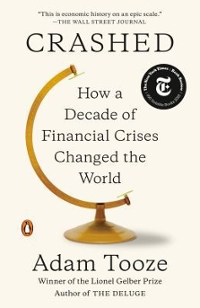Question
1. A society has three types of individuals, type I (one person in this type), type II (90 persons in this type) and type III
1. A society has three types of individuals, type I (one person in this type), type II (90 persons in this type) and type III (9 persons in this type), and is considering two policies, x and y.The utility information of the three policies is given below:
Each of type I Each of type IIEach of type III
Policy x0 25 10
Policy y180 28 10
a). How would a utilitarian evaluate these two policies?Remember that there are 90 individuals of type II, one individual of type I and 9 individuals of type III.
b). Suppose the one individual of type I is the wealthiest individual in the society, the 90 individuals of type II are the middle class, and the 9 individuals of type III are at the very bottom of the income ladder.Would this information change the answer to a) above?Why or why not?
c). Suppose we have the following information about Policy x and Policy y:
Background: the person of type I owns a huge firm that benefits him and other individuals in the society; the firm is currently in financial distress due to mismanagement on the part of the person of type I; without any help from other individuals, the firm is bound to fail.
Policy x: given the above Background, Policy x is the proposal that no action is going to be taken
to save the firm; as a consequence, the firm will fail, the type I individual will incur a huge loss (so that his utility will be 0), and each of the 90 individuals of type II will incur a modest loss (so that each will get a utility of 25), though each of type III will not be affected much (each's utility will remain at 10).
Policy y: given the Background above, Policy y is the proposal that the big firm will be bailed out by the public; as a consequence, the firm will be saved, and the utilities of various individuals are given in the table above.
Would the above information change the answer to a)?Why or why not?
d). Suppose the trouble of the firm in c) is not due to mismanagement on the part of the person of type I, but due to the economy-wide recession which could not be anticipated.Suppose everything else remains the same as described in c).
Would this change the answers to a) and to c)?Why or why not?
e). (This is just for you to think a bit further and you are not required to answer this part.) Think about the Too-Big-To-Fail (TBTF) regulation practiced in many countries."TBTF is a doctrine postulating that
the government cannot allow very big firms (particularly major banks and financial institutions) to fail, for the very reason that they are big (and hence systemically important)."The regulation can be justified on the basis of systemic riskthe risk of adverse consequences of the failure of one firm for the underlying sector or the economy at large.The possibility of bailing out (using taxpayers' money) a large firm to prevent its failure or limit the losses caused by the failure is often on the table for policy makers to adopt.
Is it a good regulation? Why or why not?
Step by Step Solution
There are 3 Steps involved in it
Step: 1

Get Instant Access to Expert-Tailored Solutions
See step-by-step solutions with expert insights and AI powered tools for academic success
Step: 2

Step: 3

Ace Your Homework with AI
Get the answers you need in no time with our AI-driven, step-by-step assistance
Get Started


